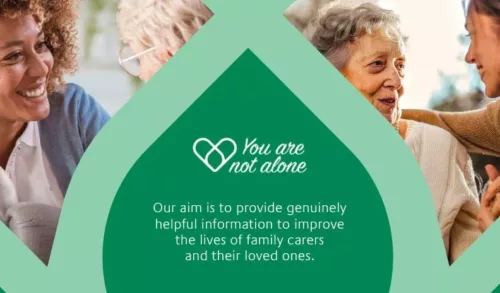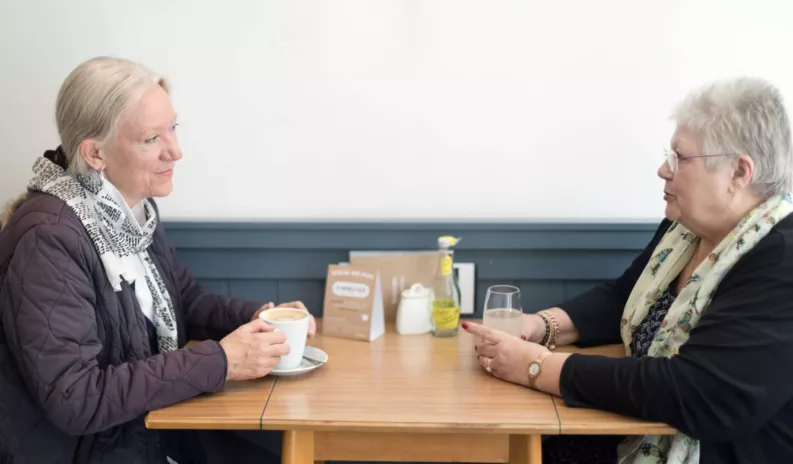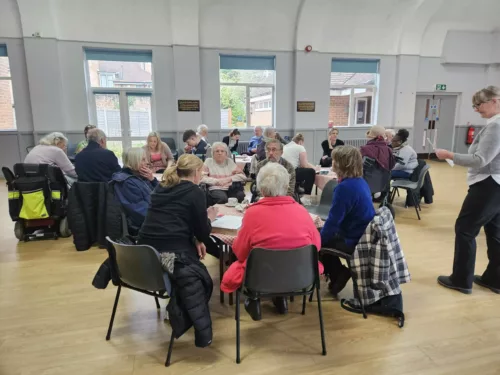
September is World Alzheimer’s Month: a worldwide campaign by Alzheimer’s Disease International to raise awareness of the stigma surrounding dementia – and to challenge it.
Alzheimer’s disease is the most common type of dementia in the UK . According to Alzheimer’s Society, there are 850,000 people living with dementia in the UK.
At Good Oaks, many of our clients are living with dementia. This blog post explains some of the symptoms of dementia, the diagnosis process and living with the condition.
What are the signs of dementia?
It’s easy to put the early signs of dementia down to getting older. Perhaps this is forgetting the names of places or people, or not remembering recent conversations. Alzheimer’s disease is a progressive condition, however, which means that symptoms become more serious over time.
The NHS provides a list of more advanced symptoms:
- Confusion, disorientation and getting lost in familiar places
- Difficulty planning or making decisions
- Problems with speech and language
- Problems moving around without assistance or performing self-care tasks
- Personality changes, such as becoming aggressive, demanding and suspicious of others
- Hallucinations and delusions
- Low mood or anxiety.
What do I do if I think my loved one has memory problems?
Broaching the subject of memory problems with a loved one isn’t easy. The Alzheimer’s Society has created a list of things to consider before starting the conversation, so that you can feel as prepared as possible.
If someone you love is having memory problems, or has been acting out of character and you are concerned, you can encourage them to make an appointment with their GP. It can be useful for you to accompany them to the appointment, if they are happy with this.
A GP will take a history from the patient and perform a physical examination. They will also ask the person a series of questions or give them a short pen-and-paper test. You can read more about the diagnosis process on the Alzheimer’s Society website here.
How can I help my loved one when they have been diagnosed with dementia?
You will likely feel a whole range of emotions if your loved one receives a dementia diagnosis. If you are their primary carer, you might be struggling to take good care of yourself or feel you don’t have time to do the things that you need to do. The Alzheimer’s Society offers a Dementia Talking Point support service, designed to help you find support in caring for your loved one.
It’s important to remember that you need to look after yourself, not only physically but also mentally, so that you are in the best position to look after your loved one.
Dementia care with Good Oaks
It might be that your loved one needs some assistance at home or with personal care. If this is the case, we can help.
We place stability, continuity and compassion at the heart of the dementia care that we provide. Different forms of dementia affect everyone differently, so we believe it is important to focus on the individual rather than on the condition.
We create bespoke care plans that are focused on helping our clients with dementia to get the most out of their lives. You can find out more about the dementia care we provide here.
We also offer respite care to families in need of care for their loved one for a short period.
If you would like to arrange a free consultation with a member of our team get in touch and we’ll be happy to help
Helpful resources
- You can read more about Alzheimer’s disease on the NHS website here
- For support with Alzheimer’s disease and dementia, visit the Alzheimer’s Society website
- You can find the World Alzheimer’s Report here





